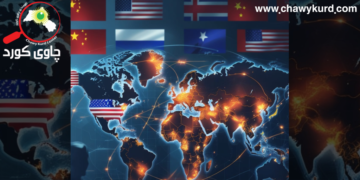On October 31, US President Joe Biden and Turkish President Recep Tayyip Erdogan met on the margins of the G20 gathering in Rome, ending weeks of speculation about whether such a summit would take place. Earlier that month, a short-lived diplomatic crisis had demonstrated just how strained ties between the two countries are.
The US ambassador to Ankara David Satterfield and nine other Western envoys had been threatened with expulsion after they called for the release of jailed Turkish philanthropist Osman Kavala – an act the Turkish government perceived as meddling in its internal affairs.
Biden and Erdogan’s meeting – their second this year – indicated that lines of communication are still open. But it cannot be denied that Turkish-American relations are at an all-time low.
From the Turkish side, the perception that the US is an unreliable ally and is in fact seeking to undermine Ankara has been growing and feeding anti-Americanism over the past five to six years. Washington’s decision in 2015 to arm Kurdish forces in Syria affiliated with the Kurdistan Workers’ Party (PKK), which Ankara – and its Western allies – consider a “terrorist” organisation, and allegations of US involvement in the attempted coup against Erdogan’s government in 2016 have all fuelled this sentiment.
From the US perspective, Turkey’s decision to foster closer ties with Russia has caused concern. The Turkish purchase of Russian-made S-400 defence systems in 2017 sent shockwaves through Washington, which has been wary of Russia’s resurgence.
The delivery of the advanced weapons to Ankara in 2019 triggered sanctions against Turkish officials under the Countering America’s Adversaries Through Sanctions Act (CAATSA) a year later. More importantly, it resulted in Turkey’s expulsion from the international consortium behind the development of a new generation of fighter jets, the F-35. Erdogan’s recent statements that the Turkish government is looking to buy another batch of S-400 surface-to-air missile systems further incensed Washington.
So with all this tension between them, are Turkey and the US on the cusp of a breakup? Probably not. Neither Biden nor Erdogan is pushing for a complete decoupling. Indeed, the Turkish government is hoping to clinch a deal with the Biden administration for the purchase of 40 F-16 fighter jets and 80 modernisation kits to upgrade older military aircraft. Turkey is keen to bring up-to-date its air force which is largely composed of F-16s. It is also keen to recoup the $1.4bn advance payment it made for the F-35 project.
At a moment when all its neighbours, from Greece to Russia to Iran, are upgrading their military capabilities, Turkey cannot afford to lag behind. For all the desire to assert its strategic autonomy, Ankara is still reliant on Western military technology. It is likewise committed to NATO which, in an era of uncertainty and with Russia building up its military strength on the opposite shore of the Black Sea, remains central to national security. No wonder, the majority of Turkish citizens continue to support membership in the Alliance.
Its weakened domestic economy and the rapidly depreciating lira, which has lost 80 percent of its value over the past decade, also highlight Turkish dependence on international financial markets. A divorce scenario with the US will not augur well for economic stability. Had the ambassadors been expelled and had a full-blown crisis with the West ensued, foreign investors would have disposed of lira-denominated assets en masse, sending the currency in free fall.
The US also still needs, in the words of State Secretary Anthony Blinken, its “so-called strategic ally”. The Turkish military remains key for NATO’s eastern flank where Russia poses a formidable challenge. Turkey’s sale of Bayraktar TB2 drones to Ukraine, now deployed against the pro-Russian separatists on the battlefront in the Donbas, demonstrates its strategic value.
Ankara has also supported all NATO initiatives aimed at reassuring allies in the Black Sea, including regular exercises and rotation of naval ships from the US and other member states of the pact. Last but not least, Turkey’s role in the Middle East and North Africa, notably in Libya where it competes with Russia and in Syria, is another reason for Washington not to stonewall Ankara. The same is true of Afghanistan where Ankara has not let go of plans to play a role in securing Kabul airport.
US and Turkey are operating in a grey zone. The alliance is hanging by a thread, but it is too early to pronounce its demise. Transactionalism is the order of the day and it is likely the two sides will work on an issue-by-issue basis.
Biden and Erdogan will, therefore, be able to cooperate in limited ways in NATO. A deal on the F-16s is not unlikely either, despite opposition in Congress. The US will not be rattled by a new Turkish operation in Syria either if the deconfliction rules established between the two militaries on the ground hold. Yet it would continue to watch warily Turkey’s engagement with Russia and, increasingly, China. Biden will be more outspoken on Turkish domestic politics too, unlike Trump. There is bound to be more friction in the future.
AlJazeera





























































